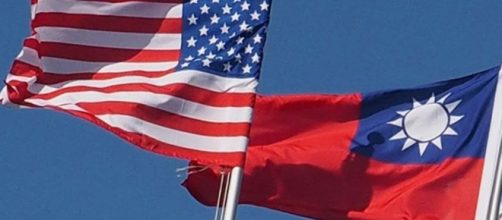U.S. House of Representatives passed early on Friday, the National Defense Authorization Act (NDAA) of 2018. The said act includes the strengthening of ties with Taiwan through expanded military exchanges with the small island nation.
What does the NDAA entail for Taiwan?
The said bill contains what is termed as the sense of Congress to provide a timely review of request for military aids for countries like Taiwan to maintain self-defense capability. This entails a detailed review of military exchanges with Taiwan and the continued asymmetrical self-defense coming from the United States.
It's aim is to provide Taiwan the necessary budget to maintain a defensive capability sufficient enough to safeguard its sovereignty from threatening forces.
Also, included in the amendment, NDAA is the feasibility and advisability of U.S. Navy warships to make Ports Of Call in Taiwan and allowing in turn, Taiwanese ships to make ports of call on American naval bases in the Pacific. Regular training, military exercises and sharing of technology with the Taiwanese military is also included in the act.
The United States is hoping to strengthen its relationship with Taiwan especially with the growing threat of North Korea and the expansionist policy of China. Beijing had been asserting itself more vigorously during the past decade on the South and East China Sea.
The growing Chinese navy is also a cause for concern as its presence in these areas are slowly stifling U.S. warship navigation in the highly contested region.
How will China react to a strong U.S. backed Taiwan?
Ever since Taiwan broke off from mainland China during the Cold war, animosity between the two nation grew stronger.
Sentiments flare over the perceived sovereignty of Taiwan and how China refuses to acknowledge the small island is now recognized worldwide as a separate country. China continually views Taiwan as a rebellious province, which in time will return back to the mainland in reunification.The United States is the main supporter of a free Taiwan, which is a remnant of the divide created by the Cold War between Communist and Capitalist countries.
China is currently in the process of revamping their military to be on par with neighboring countries such as Japan and South Korea. Beijing is also clamping on its claimed territories in the South China Sea, even though the international community have condemned its expansionist policy. However, the biggest problem with allowing the U.S. - Taiwan relationship to grow stronger is that America demands China to pressure North Korea.
A strong U.S. presence in the East China Sea, will give military leverage to effectively push China into action especially in tandem with Trump's decision to sanction Chinese banks and businesses with active transactions with Pyongyang.


